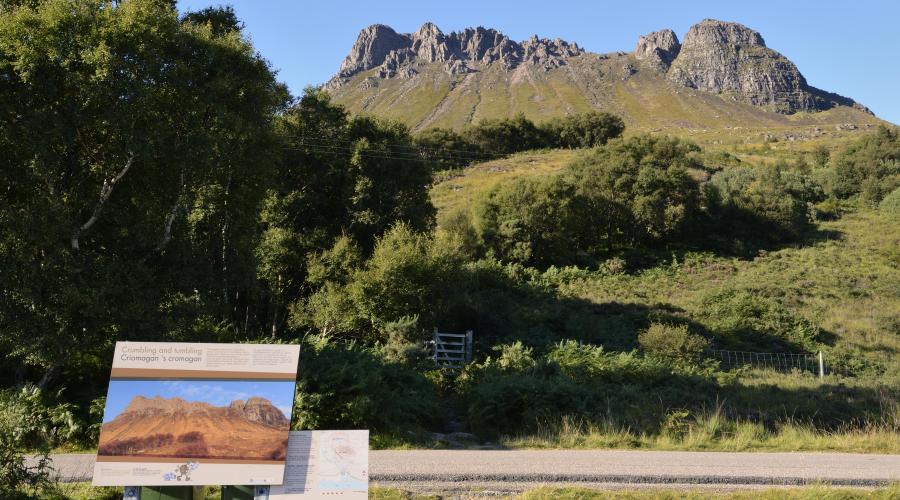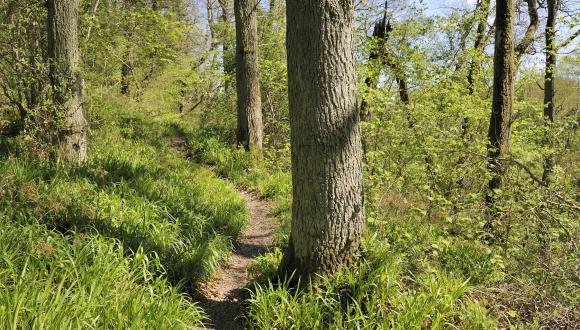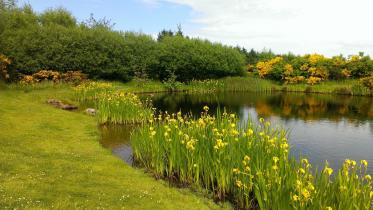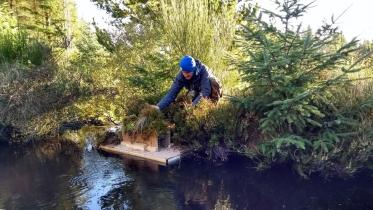
Geopark
Geopark status recognises an area’s outstanding geological heritage value and its benefit to local people through tourism and education.
The United Nations Educational, Scientific and Cultural Organisation (UNESCO) has accredited two UNESCO Global Geoparks in Scotland:
- North West Highlands Geopark
- Geopark Shetland
- Arran Geopark is an Aspiring UNESCO Global Geopark
- Lochaber Geopark (operates outside the Global Geoparks Network)
Our four geoparks together cover over 10% of Scotland's land area.
What is a Geopark?
A geopark is a geographical area with internationally significant geological heritage that is used to promote sustainable development. They are community-led, and aim to develop an active approach to geological heritage and conservation and the development of sustainable economic activities including Geotourism.
Status
UNESCO created the UNESCO Global Geopark accreditation in November 2015. Geoparks within the Global Geoparks Network now have the same level of status as World Heritage Sites and Biosphere reserves.
The 150-strong Global Geoparks Network includes 76 European Geoparks.
Selection
In Scotland, geopark proposals have been made by partnerships of:
- local communities
- local authorities
- non-governmental organisations
- Earth scientists
- NatureScot
Applications for geopark status are submitted to the UNESCO Global Geoparks secretariat through the United Kingdom UNESCO National Commission. All new applications must pass initial checks by the UK Committee for UNESCO Global Geoparks. A site visit is carried out to rigorously assess an application and the UNESCO Global Geoparks Council then assess the viability of the application. The UNESCO Executive Board make the final decision on new applications.
UNESCO Global Geopark status is valid for four years and then reassessed by UNESCO on a four-year basis. UNESCO Global Geoparks who fail to meet the criteria set out by the Global Geoparks Network and UNESCO are removed from the network. This is to ensure quality and active management of the Geopark and progress toward sustainable development of the territory.
Protection and management
Each geopark has a management group, which promotes the geopark and coordinates activities within it. Further information on each geopark and activities and projects can be found on their websites.
UNESCO Global Geoparks participate in the Global Geopark Network where best practice for geo-conservation and research is shared and projects with international cooperation are designed.
A UNESCO Global Geopark is not a legislative designation, although the key geological sites within the geopark may be protected as designated sites. It provides international recognition for these sites, and its management group actively engages with the local communities.
Sustainable Development and education
All UNESCO Global Geoparks work toward the delivery of the Sustainable Development Goals and report progress to the Sustainable Development Goal working group in the Global Geoparks Network.
Businesses inside a geopark that make use of or benefit from its area's geological heritage are encouraged to support their conservation. This is largely to do with ensuring that all activities are environmentally sustainable.
Where the Geopark management body have created a scheme, businesses that adhere to the Geopark’s aims may use the Geopark logo in marketing material. Contact your local Geopark to enquire.






